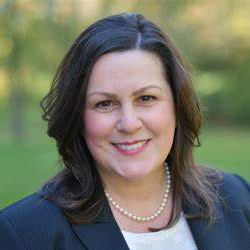AI’s Future in Healthcare

By Joan-Marie Stiglich, ELS, Healio Chief Content Officer
Published June 1, 2023

ChatGPT launched in late 2022. Language-based AI competitors quickly followed. In early May, Google showcased generative artificial intelligence (aka, Magi) for AI-infused search. Everyone has an opinion about AI, and those opinions lie between being helpful to humankind and the end of civilization.
The sister to AI is generative AI, which creates content and responds to queries, and holds the most promise for improved productivity.
AI in healthcare
Healthcare thrives on innovation; so, it did not take long for AI buzz to hit this space. Every medical conference attended by Healio staff this spring has included at least one AI talk. A quick clinicaltrials.gov search using the term “artificial intelligence” results in close to 1,400 studies.
Nearly 100% of global executives believe AI will play a role in their corporate strategy in the next 3-5 years, according to a March 2023 study by Accenture. More importantly, it was also reported that 40% of working hours could be impacted by AI.
So, where could healthcare feel the impact? It has been suggested that AI could be used in clinical decision-making, billing, scheduling, inbox handling, and other burdensome administrative tasks that currently fall to practitioners.
In several recent Healio focus groups, physicians passionately discussed the burden of prior authorizations. In an April 19, 2023 article, McKinsey & Company reported “healthcare payers recognize that prior authorization (PA) is ripe for improvement. AI-enabled PA design may deliver substantial financial, user-experience and care benefits.”
Their analysis suggested that “AI-enabled PA can automate 50% to 75% of manual tasks, boosting efficiency, reducing cost” … and wait for it … “freeing clinicians to focus on complex cases and actual care delivery.” [And the crowd goes wild.]
AI for Healio journalists
Newsrooms across the globe had to pause in the last 2 months to discuss whether they believe AI should be used in content creation. Healio was no different.
Negatives about AI – accuracy, origin of the content, fact-checking, and ownership – loom larger when the content should be coming from a reputable newsroom.
Any of the current AI tools struggle with content that was created in the last 2 years. For Healio journalists, we are creating news content in real time for an audience of physicians and other healthcare professionals.
It is that friction, plus the challenges of accuracy and questionable content ownership, that brought us to the decision to disallow AI for content creation in the Healio newsroom.
You can love or hate AI in healthcare, but it is at your peril to ignore it.
Healio writes regularly about artificial intelligence and healthcare. You can bookmark this link for a continuously updated list of articles on the topic.

